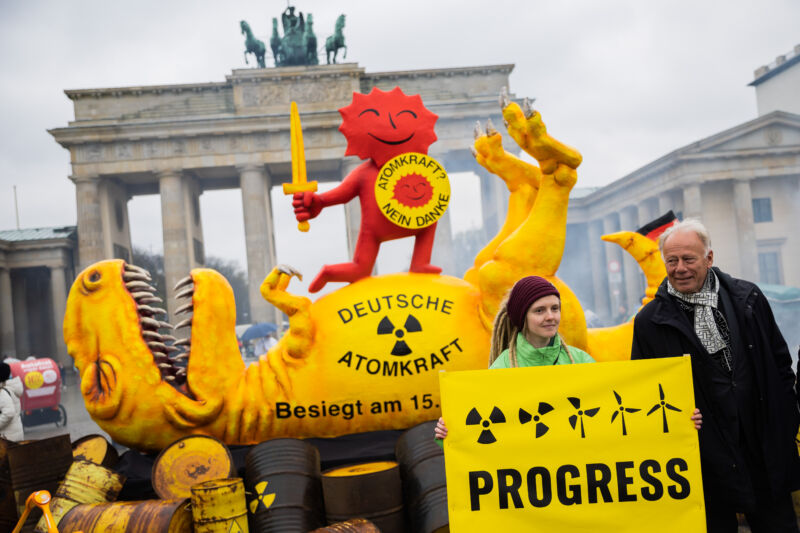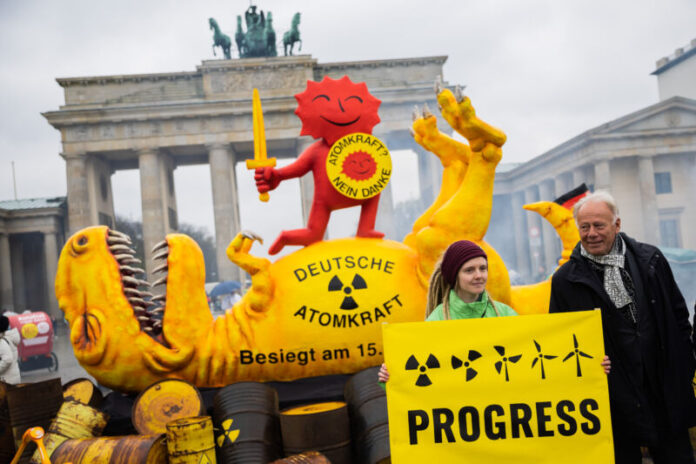
Enlarge / Jürgen Trittin, member of the German Bundestag and former environment minister, stands next to an activist during an action of the environmental organization Greenpeace in front of the Brandenburg Gate in April 2023. The action is to celebrate the shutdown of the last three German nuclear power plants. (credit: Christoph Soeder/Picture Alliance via Getty Images)
One year ago, Germany took its last three nuclear power stations offline. When it comes to energy, few events have baffled outsiders more.
In the face of climate change, calls to expedite the transition away from fossil fuels, and an energy crisis precipitated by Russia’s 2022 invasion of Ukraine, Berlin’s move to quit nuclear before carbon-intensive energy sources like coal has attracted significant criticism. (Greta Thunberg prominently labeled it “a mistake.”)
This decision can only be understood in the context of post-war socio-political developments in Germany, where anti-nuclearism predated the public climate discourse.
Read 23 remaining paragraphs | Comments
Ars Technica - All contentContinue reading/original-link]




